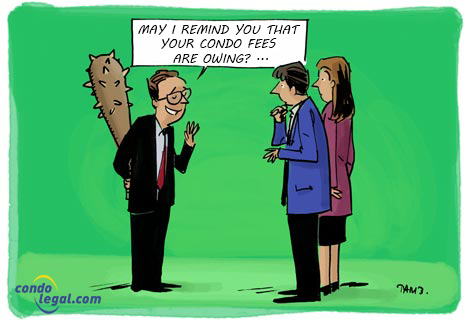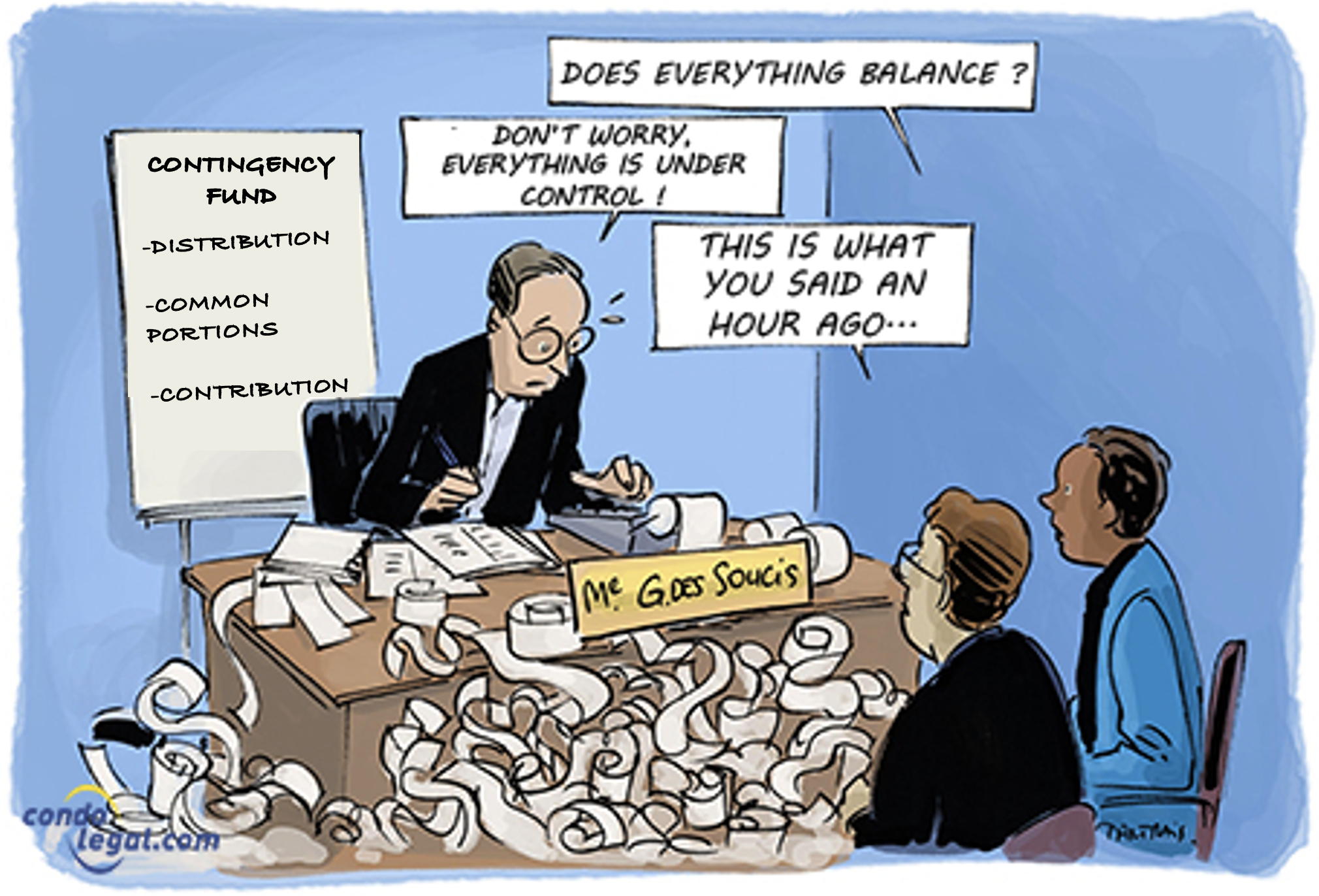Common expenses: allocation and collection

The co-ownership (condominium) gives rise to expenses relating to the maintenance of the common portions and the day-to-day administration of the syndicate. Administrative, maintenance, replacement, improvement or alteration expenses of the common portions are divided among the co-owners of the immovable. General common expenses are to be distinguished from particular common expenses; in the first case, it is the relative value of each fraction that is used to establish the co-owners contribution whereas for particular common expenses arising from common portions for restricted use, the co-owners using them are alone responsible of the expenses resulting therefrom.
Calculation of the allocation of expenses between co-owners
A) General common expenses
As their name suggests, general common expenses are charges that concern the entire building and co-owners. These are expenses incurred for the preservation of the immovable as well as the maintenance and the administration of the common portions; they are distributed among all the co-owners according to the relative value of their fraction.
In this respect, section 1064 of the Civil Code of Québec provides that:
"Each co-owner contributes in proportion to the relative value of his fraction to the expenses arising from the co-ownership and from the operations of the immovable.''
This method of allocation is the rule in the majority of declarations of co-ownership because the legal provision which prescribes it is of public order of protection.
B) Particular common expenses
Unlike general common expenses, particular common expenses are charges which concern only certain co-owners and which thus relate to very specific items of expenditure; the rules that apply to them are established according to the distribution of the costs of maintenance and repair of common portions for restricted use. Section 1064 of the Civil Code of Québec states that the co-owners who have the use of common portions for restricted use contribute to the expenses related to the maintenance and ordinary repairs of those portions.
C) Particular common expenses relating to the contingency fund
The contribution of co-owners to the contingency fund is intended to finance major repairs and the replacement of common portions, whether they are for restricted use or not. The principle of apportioning this contribution follows the general rule applied to common charges, based on the relative value of each fraction.
However, section 1064 of the Civil Code of Québec introduces a subtlety. It specifies that the declaration of co-ownership can define a different method of apportionment for expenses related to major repairs and the replacement of restricted-use common portions. For example, if a co-owner has exclusive use of a common portion, such as a roof terrace equipped with wooden decking, the costs of replacing these elements can be specifically charged to them as particular common expenses.
Fixing of the contribution to common expenses
In order for the syndicate to carry out its mission and have the necessary funds to cover its current expenses, the forecast annual budget must be submitted to the co-owners for consultation at a general meeting; the directors then adopt it with a majority vote at a meeting of the board of directors. A written resolution signed by all directors is equally valid. Thereafter, whether it concerns general or particular common expenses, the board of directors informs, without delay, each co-owner of the amount to be paid as well as the date on which the payment is due, and this is done by the mean of a notice of assessment which can be sent by mail or electronically; it is important to mention that this procedure is a prerequisite to the syndicate's right to claim the co-owners' common expenses and to the existence of a legal hypothec of the syndicate of co-owners.
Terms of payment
As for the terms of payment of common expenses, most declarations of co-ownership state that, as of the first day of the month following receipt of the notice of assessment and a copy of the provisional budget, each co-owner must pay the syndicate the amount determined in the notice of assessment; these can be established on a monthly, quarterly, biannual or annual basis in some cases. The by-laws of the immovable provide the method of payment of common expenses; it can consist of post-dated cheques or direct debits. In addition, it is common for the declaration of co-ownership to state that any partial default of payment on the scheduled date or any bouncing cheque makes the balance of the contribution or debt due.
 WHAT YOU SHOULD KNOW! The relative value is shown in the constituting act of the co-ownership (first portion of the declaration of co-ownership); it is used to establish the share of the right of ownership of the co-owners in the common portions, their contribution to common expenses and the number of votes attached to their private portion.
WHAT YOU SHOULD KNOW! The relative value is shown in the constituting act of the co-ownership (first portion of the declaration of co-ownership); it is used to establish the share of the right of ownership of the co-owners in the common portions, their contribution to common expenses and the number of votes attached to their private portion.
 WHAT TO KEEP IN MIND: Section 1064 of the Civil Code of Québec states that the co-owners who use the common portions for restricted use have to contribute alone to the resulting expenses. On a number of occasions, the courts have ruled on the interpretation to be given to the expression "expense"; thus, unless an exception is set out in the declaration of co-ownership, it does not include expenses associated with the cost regarding major repairs of common portions for restricted use.
WHAT TO KEEP IN MIND: Section 1064 of the Civil Code of Québec states that the co-owners who use the common portions for restricted use have to contribute alone to the resulting expenses. On a number of occasions, the courts have ruled on the interpretation to be given to the expression "expense"; thus, unless an exception is set out in the declaration of co-ownership, it does not include expenses associated with the cost regarding major repairs of common portions for restricted use.
 WARNING! The co-owners must contribute to the contingency fund in accordance with the relative value of their fraction. However, a clause in the declaration of co-ownership could state that a co-owner who has the exclusive use of a common portion for restricted use contributes alone to the cost of major repairs or replacement work resulting therefrom.
WARNING! The co-owners must contribute to the contingency fund in accordance with the relative value of their fraction. However, a clause in the declaration of co-ownership could state that a co-owner who has the exclusive use of a common portion for restricted use contributes alone to the cost of major repairs or replacement work resulting therefrom.
 TEST YOUR KNOWLEDGE! Click on the link to check your understanding of the above content.
TEST YOUR KNOWLEDGE! Click on the link to check your understanding of the above content.
Back to the factsheets





